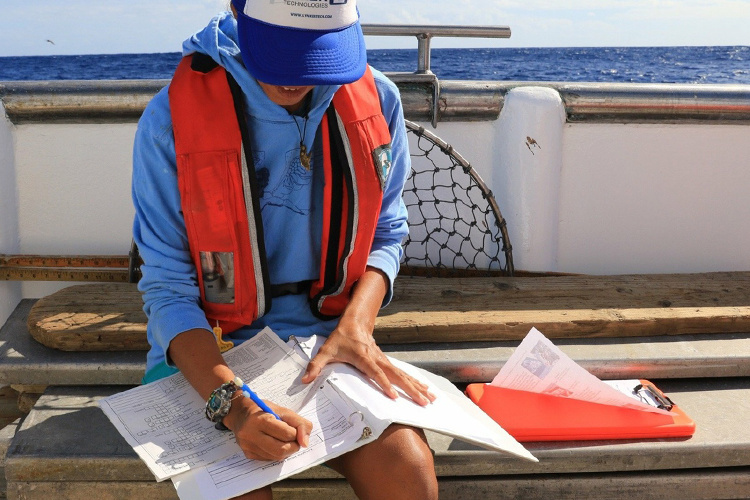At-sea observer coverage in the Northeast will resume Aug. 14, but NMFS officials say they will continue to waive monitor requirements on a trip-by-trip basis if covid-19 safety protocols cannot be met.
“Providing seafood to the country remains an essential function even in these extraordinary times, and adequately monitoring United States fisheries remains an essential part of that process,” NMFS administrator Chris Oliver said in a statement issued Thursday.
Oliver said waivers can still be allowed for specific trips in both full and partial observer-covered fisheries, under two sets of conditions: when observers or at-sea monitors are not available for deployment, or when companies providing observer services “cannot meet the safety protocols imposed by a state on commercial fishing crew or by the vessel or vessel company on its crew.”
“Within our limited authority, our efforts are intended to ensure observers and monitors are following the same safety protocols that fishermen are following,” said Oliver.
“We recognize that there are differences for observer and at-sea monitor deployment across fisheries, and have heard the concerns expressed about how observer coverage varies regionally, and even within regions,” said Oliver. “Given the diversity in our fisheries, from the composition of the fleets to how the fisheries are prosecuted, regional flexibility will continue in the detailed implementation of the two waiver criteria.
“We believe this adaptable approach will allow us to be transparent with stakeholders as well as responsive to ever-evolving changes on the ground. We also continue to encourage the use of electronic monitoring, as appropriate, as an additional option.”
NMFS officials have been under pressure from industry advocates and New England political leaders to extend blanket waivers for at-sea monitoring, which those critics see as particularly perilous for older captains and crew in the groundfish fleet and their families. The agency relented a few weeks ago from a plan to resume coverage July 31.
The environmental group Oceana said NMFS should account for the effects of lapsed observer coverage and speed up adoption of electronic monitoring as an alternative.
“The government has failed to report on the effects of the waiver or its plans to account for the resulting lack of data which will compromise catch accounting, stock assessment and quota setting for years to come,” said Dustin Cranor, an Oceana spokesman, in a statement Thursday.
“While at-sea observers are the best tool to collect this vital information, alternatives like electronic monitoring must be considered given covid-19 related health concerns. Healthy fisheries in the Northeast region depend on data collection, and the National Marine Fisheries Service must make every possible effort to collect this information in other ways—the future of our Northeast marine ecosystem depends on it.”
“We will continue to monitor all local public health notifications, as well as the Centers for Disease Control and Prevention, for updates,” according to Oliver. “We are committed to the health and safety of fishermen, observers, and others while fulfilling our mission to maintain our nation's seafood supply and conserving marine life.”







